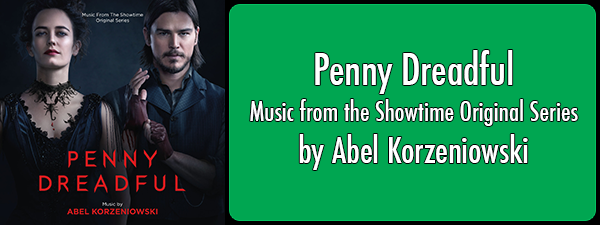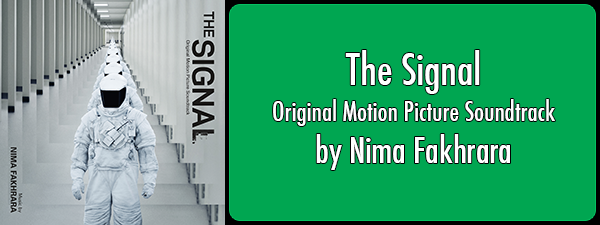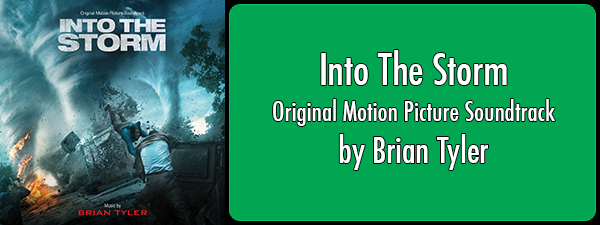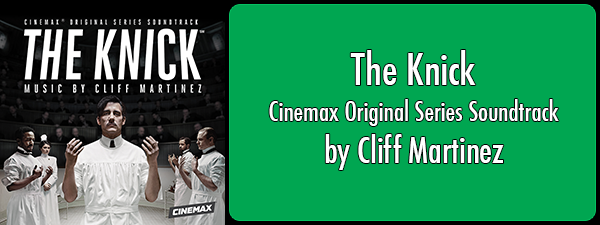
Who composed it?: Abel Korzeniowski
Who released it?: Varese Sarabande
Who’s it for?: Those who enjoy haberdashery and vampirism.
What’s the Lowdown?: Having just watched the first season of Penny Dreadful, I’m still riding a wave of excitement. The show impresses in nearly all aspects, especially when it comes to performances, direction, visual flair, and music. Series composer Abel Korzeniowski hadn’t really made an impression on me until I heard (and loved) his score for Escape From Tomorrow. Now, after hearing his work on Penny Dreadful, I can say he’s near the top of my orchestral composer watch-list.
While not as broad and sweeping as his score from Escape, Korzeniowski still employs richly orchestrated strings as the foundation for this Victorian horrorshow. You’ll also hear a great deal of piano, but Korzeniowski likes to keep his piano melodies very clean and simple. There are no big classical flourishes or Romantic-era key smashing (don’t get me wrong, I love key-smashers). The track Everyone Loves Oranges is a great example of this, the piano playing a gentle melody that is just enough to propel the music forward. The track Allegiance shows a similar hesitance, the piano used sparingly, never taking the spotlight.
So like Escape From Tomorrow, Korzeniowski still prefers to let the strings dominate, but I think that’s to the listener’s benefit. Just listen to Dorian Gray, or even Demimonde (the opening titles) to hear what I mean. Check it out at Amazon, and I think you’ll be pleased.
Standout Tracks:
- Demimonde
- Modern Age
- Welcome to The Grand Guignol
- Everyone Likes Oranges
- Dorian Gray

Who composed it?: Nima Fakhrara
Who released it?: Varese Sarabande
Who’s it for?: Custom instrument enthusiasts.
What’s the Lowdown?: A film like William Eubank’s The Signal serves to show just how far a film can get on cinematography, lighting, and score. There’s so much to enjoy about The Signal, but if you’ve seen the film then you know it starts strong and loses its way. Nima Fakhara’s score is very similar in that respect: as the film loses its way, so does the score. However, that might actually serve as a testament to Fakhara’s capabilities as a film composer. He was able to give the director a fitting score for the entire film, following the film’s intellectual descent into silliness.
Before we talk about the descent, let’s talk about the good, because the soundtrack has quite a bit of it. The opening track, Good Luck, perfectly encapsulates the soft melancholy and romance of the film’s opening montage. A theme is established here; a love theme that would support the film’s emotional thesis. We hear this theme again in a track called Hallway Roll, but it vanishes shortly thereafter, along with that emotional thesis. The film forgets to bring that thesis back around, so naturally, the accompanying theme is absent. There’s another recurring motif established early on, but by the time we reach the halfway point of the soundtrack, any recurring motifs pretty much gone. The end is void of meaningful theme, both musically and narratively.
Instead of our poignant emotional thesis we get a flashy dubstep arrangement of Bach/Gounod’s Ave Maria, which seems to be in the movie for no apparent reason other than “it sounded cool”. And I think it’s because above anything, director William Eubank wanted an ending that looked and sounded cool. He got that (kind of), but narratively it’s a hollow revelation accentuated by a thematically irrelevant but beautiful classical piece with a helping of bro’ed out wub-wubs courtesy of Free The Robots. It’s faux-intellectual drivel, but for what it’s worth, it looks good on screen and sounds good on the soundtrack.
As a collection of music cues, the soundtrack to The Signal works much better than the film, and Nima Fakhrara shows a healthy amount of innovation in his composition. He even built several custom instruments for the score, which is really cool. If you’re interested, you can pick this up over at Amazon.
Standout Tracks:
- Good Luck
- Hallway Roll
- Hailey
- Visitor Center

Who composed it?: Brian Tyler
Who released it?: Varese Sarabande
Who’s it for?: Lovers of temp music.
What’s the Lowdown?: Found footage has been picked apart to death, but filmmakers are still exploring the limits and abilities of it. Found footage offers an immediate realism, which when combined with effective marketing, can thrill audiences like mad. One of the most stalwart tropes of found footage is the absence of nondiagetic elements, like film scores. When going for that raw, barely edited documentary feel, an epic orchestral score seems an odd choice. Unless, of course, you don’t want your found footage movie to feel raw and barely edited. That’s what we’ve come to now: faux doc films that are going back to what has worked in the more traditional cinematic format for a century. Enhancement/synthesis of drama through musical score.
Does it work in Into The Storm? I don’t know, because I haven’t seen the film. But by itself, Brian Tyler’s orchestral score straddles the line between favorable and forgettable. Now it should be noted that I like usually like Brian Tyler’s scores. His score for Thor: The Dark World was pretty high on my list of 2013 favorites. But for all the chaos and fury we might expect in a handheld killer storm movie, there isn’t much chaos to be found in the composition. The cues are very straightforward, never playing with odd time signatures or atypical structure. There are no interesting curveballs. It gets big when you expect it to, and the smaller cues hit their required emotional beats. It’s doing what it’s supposed to do, but in a very by-the-numbers way.
The score does have themes that can easily be identified, and they’re featured frequently throughout the score, so you’d think they’d be more memorable. But none of this score is all that memorable, because a bunch of the cues on this score sound like bloodless re-arrangements of temp music. That sounds harsh, but tell me Fate doesn’t sound a hell of a lot like the tracks Fearful Odds or I’m Sending You Away from the Oblivion soundtrack.
Hopefully this is just a one-off from Tyler, who has been doing a lot of fantastic work lately. If you’d like to purchase his score for Into the Storm, you can do so at Amazon.
Standout Tracks:
- Titus Versus The Tornado
- The Fire Tornado

Who composed it?: Cliff Martinez
Who released it?: Milan Records
Who’s it for?: You.
What’s the Lowdown?: If you haven’t yet seen it, be advised that The Knick is flat-out great. It’s extreme in all the right ways, muted when it needs to be, and is anchored by an amazing cast and Soderbergh’s visual panache. It’s some of 2014’s best television, and Cliff Martinez’s score is one of the many reasons I say that.
Much like the show’s lighting, Martinez’s compositions are minimalistic, often featuring just a few synth layers and (of course) his signature cristal baschet. These sounds together form the demented, haunting calliope of John Thackery’s circus. You’ll also hear chiming electric guitars and bass that sound so pure and clean you’d swear they’d been scrubbed with sonic bleach. You might think this minimalism and cleanliness would rob the score of texture, but you’d be wrong. The score is a triumph of texture and mood, but it also establishes themes that carry through the entire season, allowing them to develop in ways that feel organic and true to the distinct spirit of the show.
The most striking thing about this score is the anachronistic nature of the sounds themselves. In great contrast with the show’s early 1900’s setting, the score unsettles in way that provides The Knick with a signature tone, setting it far apart from other period dramas. The creepy echoing synth on Son of Placenta Previa acts as John Thackery’s musical introduction, as he injects cocaine solution into a vein on his foot while riding in a horse drawn carriage. It’s moments like this that make The Knick one of the most compelling non-orchestral scores of the year. You’ll be seeing this on my top ten, and I highly suggest you buy it on Amazon.
Standout Tracks:
- Son of Placenta Previa
- Finish Your Breakfast
- Drizzled Him Good
- Not Leaving This Circus
- Call Me Dad
- Fire It Up Again
- Sail to Europe